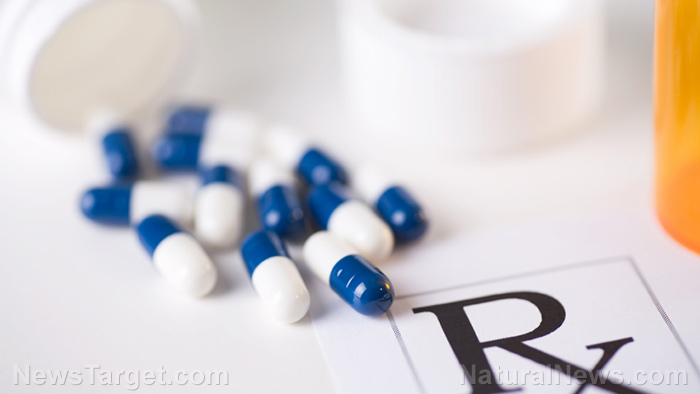
Almost 96 percent of pharmacy technicians surveyed by the Pharmacy Technician Certification Board (PTCB) reported shortages of essential drugs, such as chemotherapy medications and anesthetics.
Anthony Longo, a doctor of pharmacy and director of pharmacy at Northwell Long Island Jewish Forest Hills in Queens, warned that these drug shortages are affecting several areas of pharmacy practice, such as "retail, compounding and hospitals." (Related: Food shortages and inflation continue as “Bidenomics” SPECTACULARLY FAILS.)
The crisis underscores the importance of urgent policy solutions to ensure a steady supply of essential medications.
The impact of drug shortages, particularly for cancer medications, can be fatal for many patients. If they are unable to buy their medications, people may resort to less effective alternatives, resulting in higher healthcare costs, longer hospitalizations and increased risk of adverse reactions.
To address these drug shortage issues, 90 percent of surveyed technicians said they offer substitute drugs if they are available. Nevertheless, almost 45 percent of the time, patients still leave pharmacies without their needed medication.
If there are no equivalent drugs available, almost one-third of technicians resort to in-house compounding. Only six percent reported that they refer people to external pharmacies.
In-house compounding of drugs refers to the practice of preparing customized medications within a healthcare facility, like a pharmacy, medical clinic or hospital, instead of obtaining commercially available medications.
Some survey respondents said they collaborate with other pharmacy teams to acquire needed meds.
One respondent said they run weekly shortage calls as a system to address drug shortages. Another respondent shared that they will prioritize reacting swiftly to prevent lapses in care. Others said they would contact drug representatives to find medications for patients.
In a statement, PTCB CEO William Schimmel said it's not surprising that pharmacy technicians are actively working on solutions to resolve drug shortages for their patients. He added that he was "impressed by the spirit of collaboration, even outside of the pharmacy where they work."
Shortages already affecting patient care
The results of the PTCB pharmacy technician survey are similar to the findings of an American Society of Health-System Pharmacists (ASHP) survey conducted this summer.
Michael Ganio, who has a doctor of pharmacy degree and is the senior director of pharmacy practice and quality at ASHP, warned that drug shortages severely impact patients and healthcare staff.
Additionally, the shortages overburden pharmacy technicians already struggling with staff shortages. According to Ganio, this is "an unsustainable reality" for the healthcare system.
In July, the ASHP released survey results on the current drug shortage crisis. The online survey was conducted from June 23 to July 14 and tracked responses from 1,123 participants.
The ASHP reported more than 300 active shortages at the end of Q2 2023 – the highest in nearly a decade and close to the all-time high of 320 shortages.
In July, almost all respondents confirmed experiencing shortages.
At least 32 percent of the respondents said the shortages were "critically impactful," defined as rationing, delaying or canceling treatments or procedures.
Within this group, 57 percent of respondents are facing critical shortages of chemotherapy drugs that are impacting patient care. Hospital pharmacists also said significant shortages exist for hormonal drugs, steroids and oral liquids, such as amoxicillin and lidocaine.
The ASHP recommends policy solutions that will resolve the key drivers of generic drug shortages:
- Quality control
- Supply chain disruptions
- Extreme price competition
Low-profit margins for generic drugs are a major factor in shortages. The ASHP reported that intense competition has decreased the profitability of certain generics.
Because of this, some manufacturers shift capacity to more profitable drugs instead of dealing with issues in producing less profitable generics. Eventually, this can result in some companies stopping the production of these drugs altogether.
ASHP Chief Executive Officer Paul W. Abramowitz said that amid the ongoing drug shortages, pharmacists in hospitals and health systems are collaborating with other clinicians to provide safe and effective care by "finding needed medications, identifying substitutes and managing changes to treatment plans" as needed.
Even though capable and hard-working pharmacists have been managing drug shortages routinely for decades, the current shortages are longer and more persistent.
Abramowitz warned that the ongoing shortages affect more than 300 drugs and that the trajectory is growing. He concluded that the issue is "unsustainable for hospitals and patients alike."
Visit BigPharmaNews.com for more news about drug shortages in America.
Watch the video below to learn why Big Pharma is purchasing all vitamin and supplement companies.
This video is from the Thrivetime Show channel on Brighteon.com.
More related stories:
Food, drug shortage crisis rages on: Numerous pharmaceuticals to run out before end of 2023.
Tennessee ambulances face drug shortages as supply chains crumble.
Drug and food shortages are here, and they will get a lot worse.
Sources include:
Please contact us for more information.






















